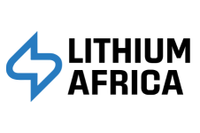Galaxy and POSCO Complete US$280-million Argentina Lithium Deal
Galaxy Resources has officially sold a tenement package at the Argentina-based Salar del Hombre Muerto to POSCO.
Galaxy Resources (ASX:GXY) has completed the sale of a northern tenement package at the Salar del Hombre Muerto in Argentina to POSCO (NYSE:PKX) for US$280 million.
First announced in late August, the proceeds from the deal are intended to help accelerate development at Galaxy’s Sal de Vida project, located south of the Salar del Hombre Muerto in Catamarca.
Galaxy is expected to receive the US$280 million sometime this week after the sale is registered with the Salta and Catamarca provincial mining courts.
Dependent on the completion of predetermined conditions, Galaxy will also be transferring brine extraction rights over five extra tenements — worth US$15 million — to POSCO by the end of November.
POSCO said in August that it will be building a plant in Argentina that will produce 25,000 tonnes of lithium carbonate per year over a 20-year mine life, with production set to start in 2021.
Galaxy’s Sal de Vida tenements come with a total measured, indicated and inferred resource of 5.16 million tonnes (Mt) of lithium carbonate equivalent (LCE). Proven and probable reserves stand at 1.14 Mt of LCE; however, the company says that further drilling is ongoing to convert more of the 5.16 Mt resource to increase the 1.14 Mt reserve.
The company is also exploring various strategic partnership options to help develop Sal de Vida, and is in the process of negotiating with shortlisted possible investors.
Galaxy shares took a small hit on the ASX on Monday (November 26) after the announcement, dropping 1.53 percent to close the day at AU$2.58. POSCO was down 1.06 percent on the NYSE as of 3:20 p.m. EST, hitting US$53.74.
To learn more about Galaxy, listen to our recent interview with Managing Director and CEO Anthony Tse.
Don’t forget to follow us @INN_Resource for real-time news updates!
Securities Disclosure: I, Olivia Da Silva, hold no direct investment interest in any company mentioned in this article.




